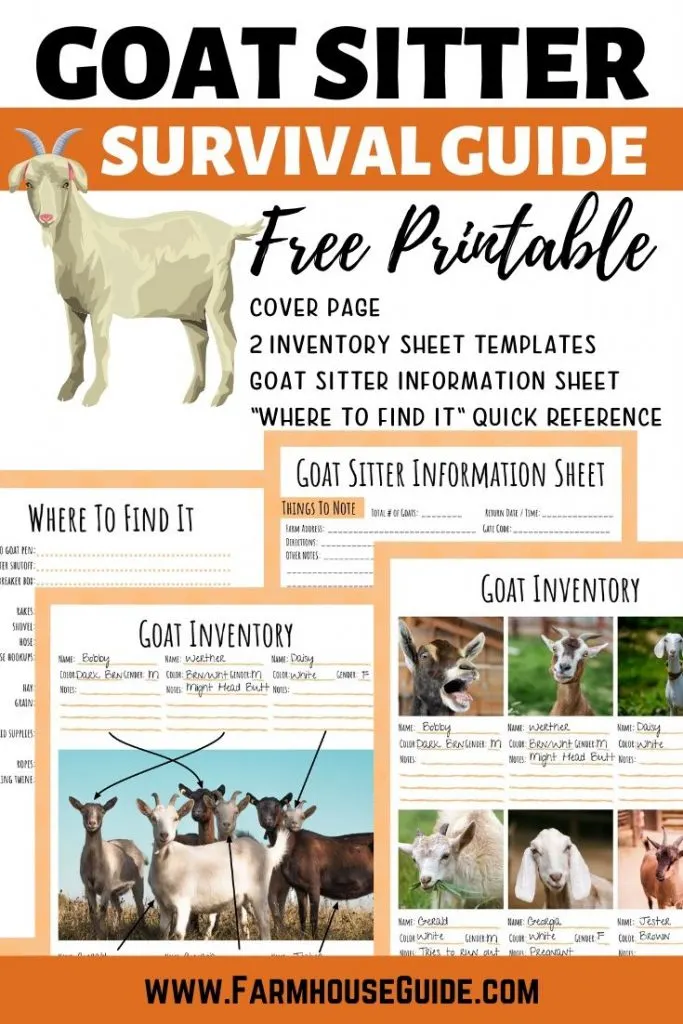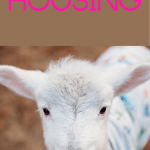They’re small, they’re smart, they’re oh so adorably cute – they’re your pet goats! Whether you have one goat or a few of them, you most likely snagged these friendly farm animals for their companionship and relatively low maintenance. Which naturally begs the question – how long can you leave your goats alone? If you’re planning to leave town, should you arrange goat-care after a day or a week?
How long can you leave your goats alone? Goats don’t have a single, consistent number of days they can be left alone, but the general rule of thumb is not many. Though you can provide for them things such as shelter and food to graze on, goats do need regular feeding, attention and wellness checks.
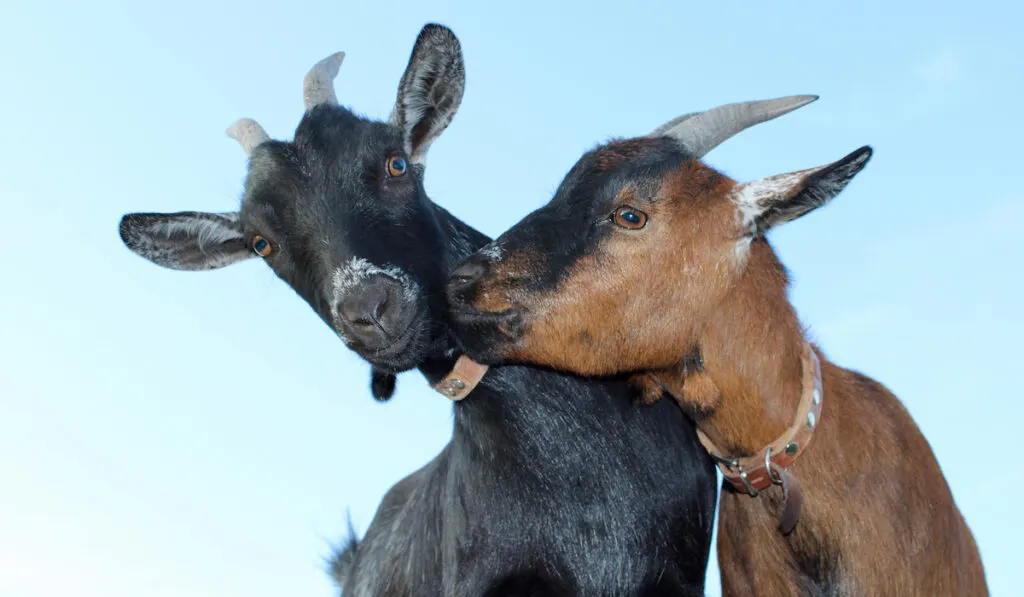
Here are 9 things you should consider when deciding how long to leave your goats at home alone.
Table of Contents
1. Nutrition
Goats are grazers but goats also have feeding needs that really should be overseen by a human who knows better. Though they eat grass, they also eat shrubs, trees, flowers and bushes you probably do not want them destroying. But the fact of the matter is that, even though your stubborn goats may not realize it, they cannot get enough and complete nutrition from grass hay and leaves alone.
Goats need to have their diets supplemented with alfalfa or oat hay, feed and a salt or mineral lick. Alone, they won’t be able to find those things for themselves (the curse of cloven hooves over thumbs) and if they are left a few days’ supply all at once, they lack the foresight and willpower to not eat the entire stash in a day.
Water is also a major concern, as goats need fresh water at all times. If you have automatic waterers, that may solve the problem (though if particularly cold, they can still freeze) but otherwise, you need someone to change the goats’ water.
Standing water grows bacteria and molds, which are massively dangerous for goats. Plus, there’s no telling how quickly they may drink the water (or spill or have it freeze) and the ability to hydrate whenever they need is essential.
They also are a funny mix of “will eat anything” and “persnickety eaters”, meaning it’s a constant battle to balance preventing them from eating what they shouldn’t, and making sure their regular food is acceptable to them and being eaten as needed.
2. Housing
Goats Are the Houdini’s of the Barn World
Just because you think you are leaving your goats safe and secure, doesn’t mean they’ll agree. In fact, goats are well known as escape s, and so they need regular supervision to make sure they are staying where they should be!
From jumping to crawling to even squeezing through impossibly small spaces, a goat can surprise many with how easily they can find their way out. And a goat alone and unsupervised just means for time for pulling a barnyard Escape from Alcatraz.
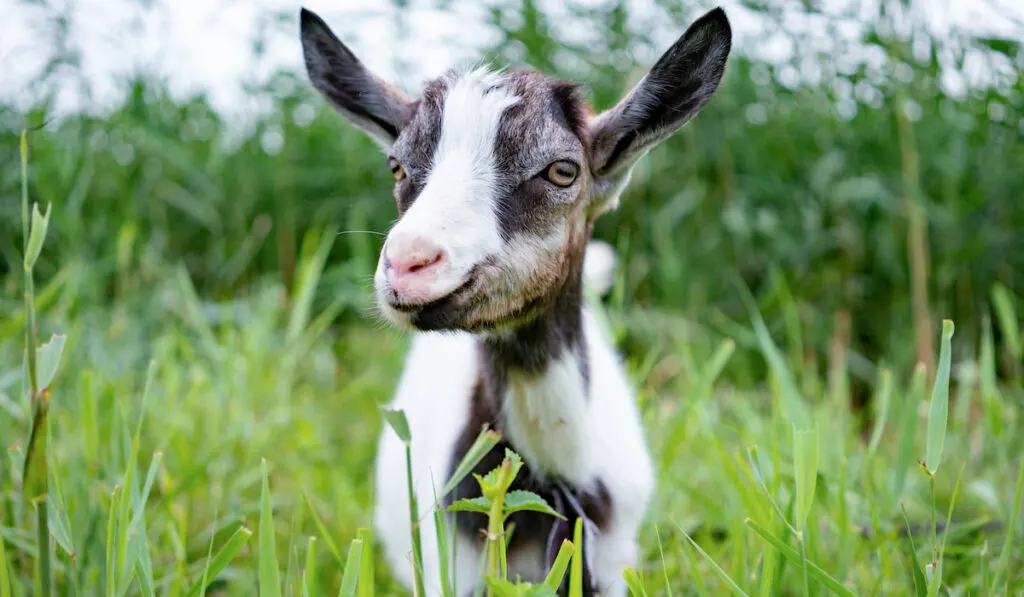
3. Destruction in a Four-Legged Form
So far we’ve covered that goats are extreme animals when it comes to eating and escaping, but it doesn’t end there. Taking it a step further, when left to their own unsupervised devices, goats can cause some serious damage.
Particularly in the spring when they are actively shedding a thick winter coat, goats can use fence posts and boards as scratching posts with a little too much enthusiasm, breaking and knocking them down in the process. They may even push or kick at the fence for the fun of it.
They also can, out of boredom and anxiety, turn to nervous chewing. Fences, buildings, ladders, etc. – all can be victims of the dreaded goat chew.
4. Mental Health / Enrichment
Goats are social animals with a strong sense of routine. If they are left alone for too long, not only can they feel the effects of loneliness, the stress of their regular routine being upended can manifest in anxiety and frustration.
Aside from the physical outbursts, this can lead to (as mentioned above), it can seriously hurt your poor baby goat’s emotional and mental well being.
5. Milking
Do you have a doe you use for milk? If so, does she still have her babies nursing? Her comfort and well being is regulated by milking. You cannot leave her unmilked for too long a time or she will experience pain from her engorged udder.
Plus, this also may disrupt the milk production cycle as a whole as it signals to her that her milk is no longer needed, causing her body to react by ceasing to produce, albeit in an extremely uncomfortable manner to her.
If she still has a baby or two suckling, there isn’t too much to worry about if you are going to be gone for just a couple of days. If, however, you chose to bottle raise her babies, someone will need to milk her each day.
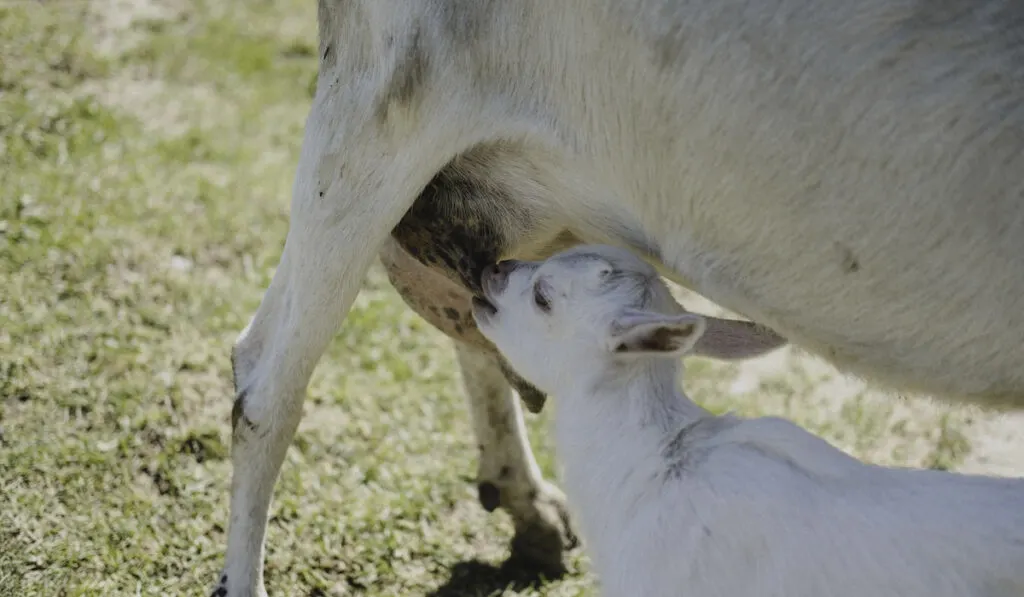
6. Weather
Mother nature can be a pain. Another score for uncertainty, but weather and winds can wreak havoc on a goat’s life if there is no one around to check-in.
All goats need dry, covered shelter and sometimes if there is a torrential downpour or massive winds, that shelter can fail. If a storm badly damages your goats’ only run-in day one of a seven-day vacation, that means those poor animals are left exposed to the elements for six days.
Goats are notorious for disliking being wet, so anything less than a dry living condition is torture to them.
7. Curiosity – It Gets Cats and Goats
Going along with their social, friendly nature, goats are also very naturally curious. They will want to investigate new smells, new animals, new sights – almost anything.
Without an understanding of the world around them, that can lead to dangerous situations when left unchecked. Expect unsupervised goats to chew on gates, pull at latches until they unlock, tug at wires – even stick their heads through fences!
A goat with its head through too small of an opening can then easily become stuck without some human caregiver intervention to rescue them.
8. The Unexpected
Look, of course, we want to think our animals will be safe and healthy. But Murphy’s Law seems to be especially fond of the vet’s office and vacations, so bear in mind there is a chance your goats may hurt themselves or fall ill while you are away.
From an accidental injury from some anxiety kicks to food poisoning from ingesting something they should not have to a bug bit blown up to a fence nail scratch that becomes infected and beyond, goats always have the threat of injury or sickness.
And if they are not being checked in on, a wound or an illness could go too long untreated and become worse, more expensive to treat or even fatal.
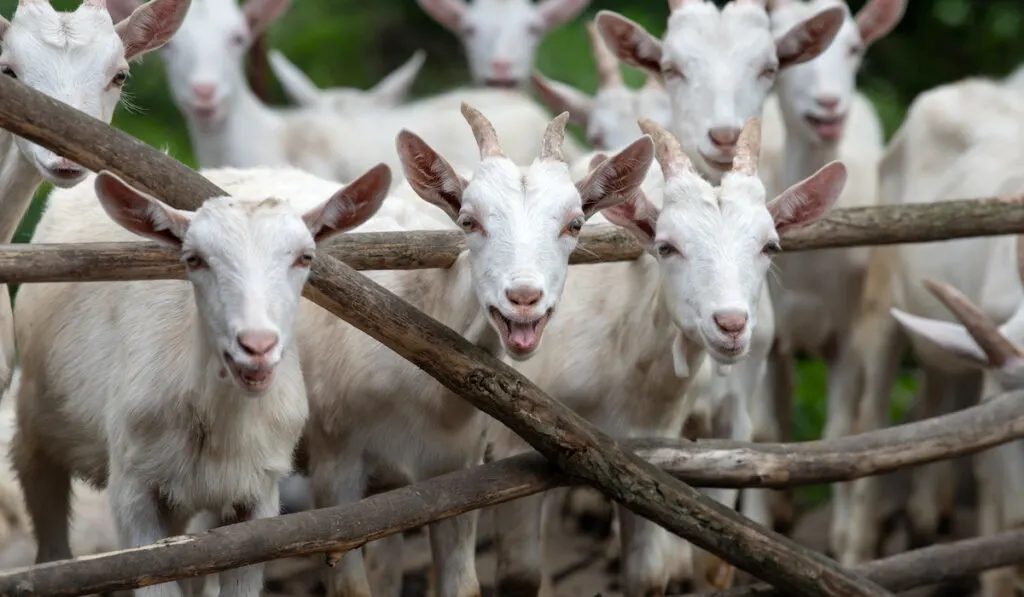
9. The Neighbors
Going away and leaving your goats alone affects more than just them – you have got to think of your neighbors, too. Goats bleat. Goats scream. Goats cry.
Goats, let’s face it, have the propensity to be very loud.
Even goats that are normally very quiet and even-tempered can seize on a time of no supervision and vocalize their distress, their hunger, their boredom – anything.
Especially if you’re gone for more than one day, your goats are going to make noise and that’s just going to unfairly annoy your neighbors and probably lead to some unwanted complaints.
Goats are wonderful backyard pets, whether you live on a sprawling ranch or have a plot of land that is decidedly tinier. They are also less maintenance than, say, a horse or a dog, but they still do require care.
Livestock, remember, have been domesticated and so they rely on humans to make sure they are safe, healthy, well-fed, happy and polite enough to function quietly in a functioning neighborhood.
If you are planning on leaving your goats for more than a day, make sure you have some form of care and check-ins arranged so your goats stay safe and you can enjoy your time away stress-free.
Vacation Checklist
Before you head out on vacation, there are just a few things you should consider:
- Have extra water buckets in the pen.
- Have ample food available. If your goat sitter will be feeding daily, try portioning out food for each feeding to make things easy on them and ensure your goats get the right amount of hay.
- If you will be feeding free-choice hay, use a hay feeder or stack it neatly. Avoid using hay nets if goats are going to be unattended for long periods of time.
- Make sure your goat shelter and pen are in good repair.
- Have extra rope, lead ropes and goat collars available in case there is an escape.
- Prepare your goat sitter for unforeseen events like a super cold night where the water hose is frozen, or a pipe break and the water needs to be shut off, etc.
- Have emergency numbers for yourself, your veterinarian and one or two goat savvy friends available.
- When possible, have a list of the total number of goats as well as a photographic reference for the goat name/picture. If your friend has to call you with an issue with one of the goats, this is going to be a lot more helpful to you than “the white one looks sick”, especially if there is bad service on either end and a picture won’t go through.
How Often Should Your Goat Sitter Visit?
How often someone needs to check in on the goats is completely up to you. You know your goats and farm best. If you are free-feeding goats who have multiple water sources and no chances of frozen water, every other day or even every couple of days might be OK.
Whenever possible, a daily check is best. If you or a friend can’t check on your goats daily, consider investing in an economical video surveillance system for your goat pens while you are away.
While not ideal, a couple of well-placed cameras can allow you to keep an eye on your goats and feel sure that they are OK. That peace of mind is well worth it. After all, the whole point is that you enjoy your vacation!
Goat Sitter Survival Guide Download
